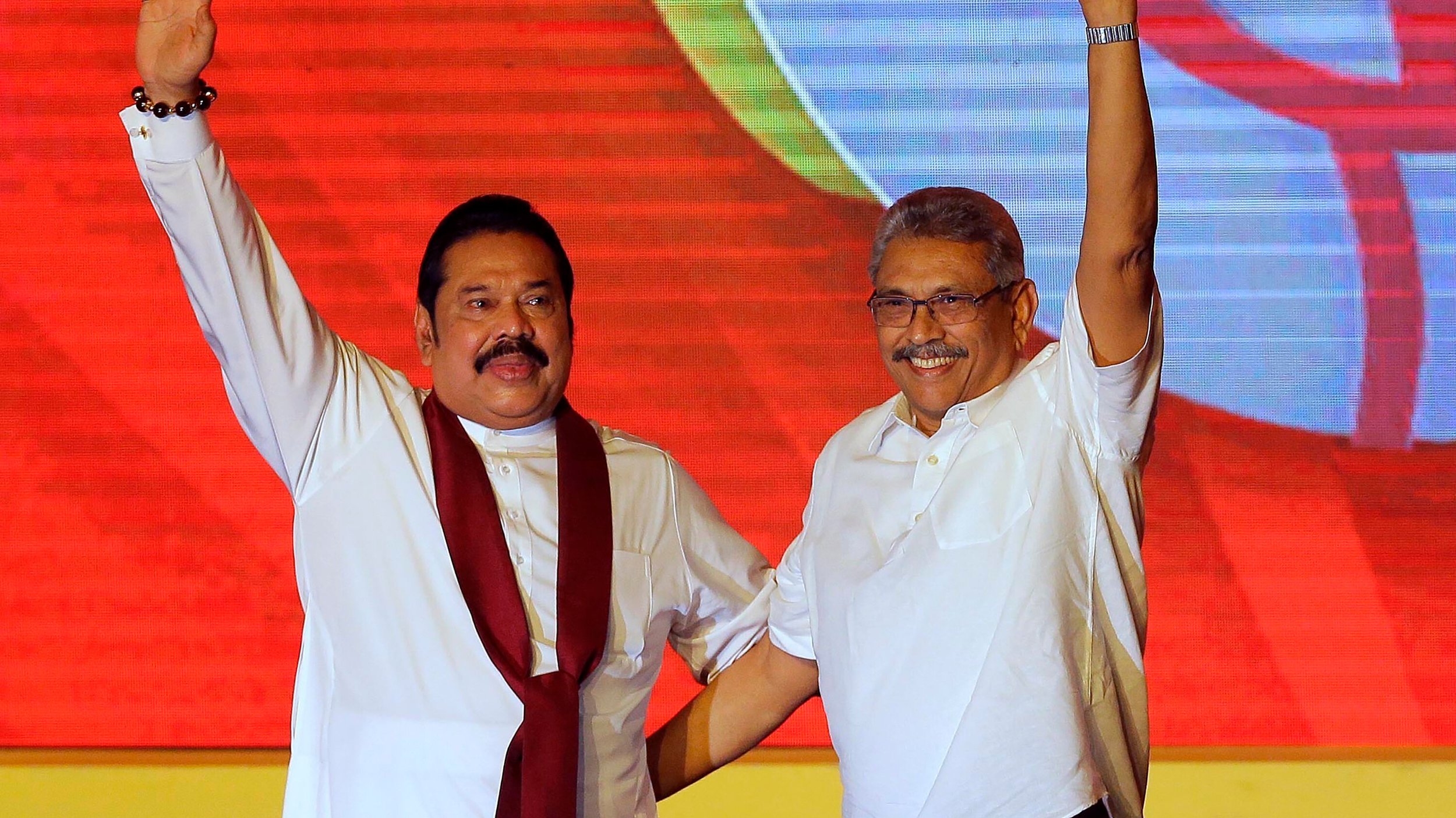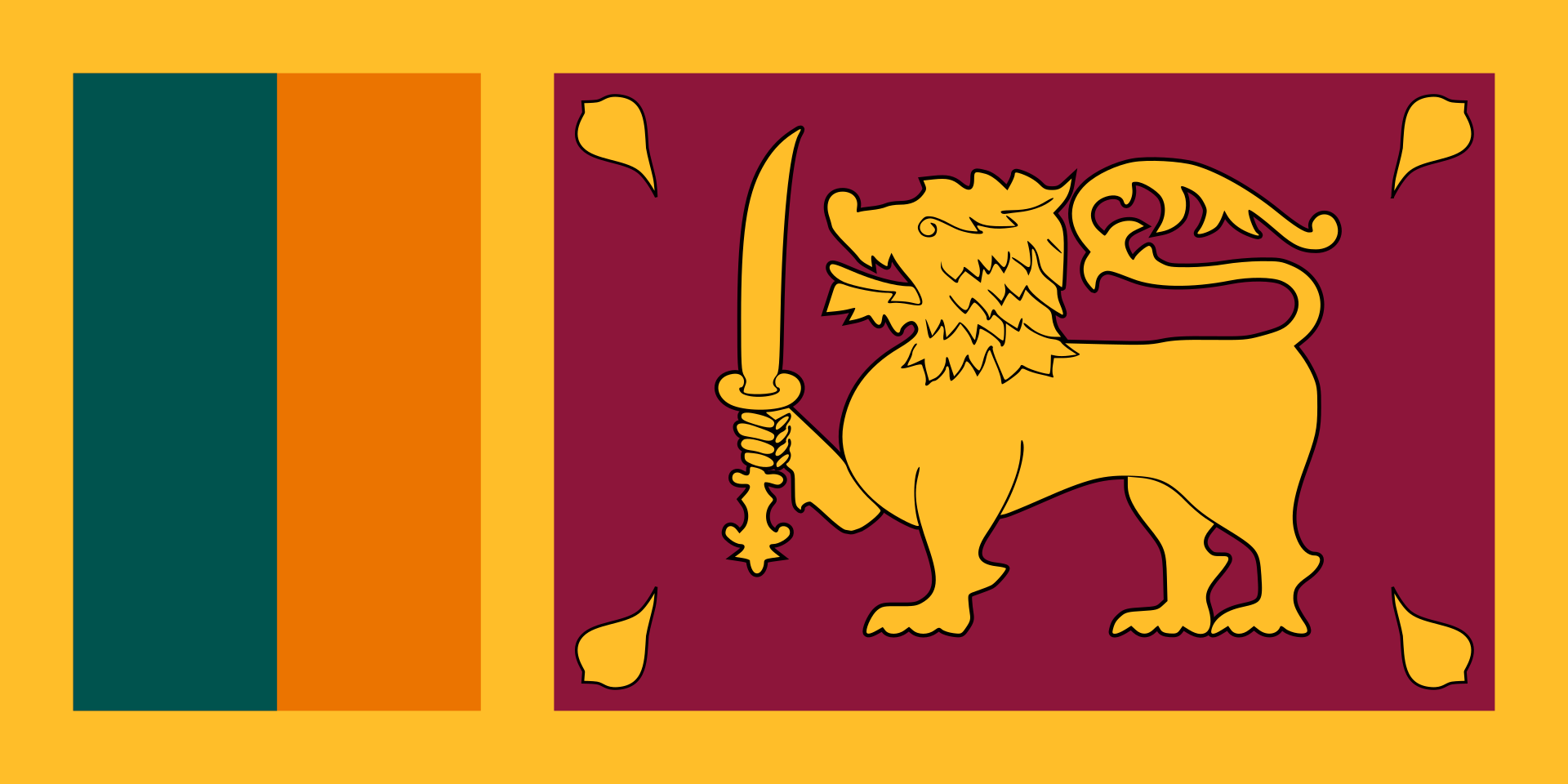
Sri Lanka - 48.46
106
A big to-do for a little island
Despite its status of relative insignificance on the global stage, Sri Lanka’s independent history has been more than eventful. Conflicts between the country’s Buddhist majority and Hindu Tamil minority have defined much of the country’s history. The echoes of the Sri Lankan Civil War can still be felt, as tensions between the two groups still run hot and terrorism and communal violence remain real threats in the country. The government has been accused of keeping land seized during the war for personal profit and to discriminate against its Tamil former inhabitants. However, Hindus are not the only group to face discrimination in the country. Discrimination against Muslims is rampant throughout the country and Muslim education is very strictly regulated. Sri Lanka’s government, ostensibly a democracy, has been dominated by the Rajapaksa family (taking on various different political parties) since the early 2000s. The Sri Lanka Podujama Perama (SLPP), the current part of the Rajapaksas, has been consolidating power. Political bribery in parliament is commonplace as parties are often bribed into forming or joining coalitions. While Sri Lanka has a generally strong economy, it is fragile and prone to drastic fluctuations based on the state of politics in the country. Sri Lanka’s development continues to be hampered by mismanagement and a lack of direction by its increasingly authoritarian government.
Human Rights - 34
Sri Lanka has functionally abolished the death penalty; the last execution was carried out in 1976. The government continues to hand down death sentences but does not execute. Police arbitrarily executed suspected drug dealers with impunity. In a bizarre practice, drug dealers in custody were often brought along on raids where they were killed in the crossfire. This practice has been accused of being a way to dispose of connected drug dealers who would rat on politicians. Police opened fire using live ammunition into a crowd of rioting prisoners, killing eleven and injuring over one hundred. The government refuses to hold human rights violators from the civil war accountable. Several members of parliament and generals, who still hold their positions, were accused of war crimes during the civil war. Additionally, the government has refused to take accountability for disappearances during the civil war. Torture is widespread in Sri Lankan detention. Police regularly beat detainees, deprived them of sleep, applied electric shocks, and waterboarded them to obtain confessions. Confessions obtained under duress were not thrown out of court. Detainees were often denied access to their family members or legal counsel and were subject to marathon interrogations. Detainees were often not informed of their rights. Prison conditions are awful. The prison system was at 173% capacity throughout the year, with the Colombo Welikada Prison reportedly at 300% capacity. Prisoners lacked adequate access to medical and sanitation facilities. COVID ran rampant through prisons with some prisons reporting positivity rates higher than fifty percent. Detainees were subject to lengthy pretrial detention times and bail was often withheld. The government is accused of keeping several Tamil rights activists in detention as political prisoners. Several Tamil rights activists were accused of being Liberation Tigers of Tamil Elam (LTTE) fighters despite both the activists themselves and human rights organizations denying any connection to LTTE. The military is accused of keeping land seized during the civil war for personal profit. Court cases over the reclamation of some High-Security Zones (HSZ) have been slow and the property owners accuse the government of keeping land that is profitable to them. The government has also been accused of holding on to property to prevent Tamils from living there. Media criticism of corruption or the military has frequently resulted in lawsuits, arrests, and physical intimidation. Muslims face severe discrimination around the country. Anti-Muslim hate crimes are generally tolerated by the government. During the 2020 elections, MPs promised to ban burqas, madrassas, and reform laws governing Muslim education and marriages. Additionally, Muslims were forced to cremate the remains of their family members who died of COVID. Homosexuality is illegal, but Trans Sri Lankans can change their gender after sex reassignment surgery. Abortion is legal to save the woman’s life.
Democracy - 55
The president is directly elected and the prime minister is chosen by parliament. Parliament is directly elected. Elections are generally free and fair, but the 2019 elections saw some violence (mostly directed at Muslim voters), and the 20th Amendment, passed in October 2020, grants the president the sole authority to appoint electoral commissioners. The Rajapaksa family under various political parties has exerted political dominance since the early 2000s. The SLPP and its allies currently hold a parliamentary supermajority. Under the administration of Mahinda Rajapaksa, the executive branch has consolidated a significant amount of power. Despite the continued consolidation of power by the Rajapaksa family, Sri Lanka still experiences regular peaceful transitions of power, and opposition groups are generally free to operate and participate in elections. Political bribery in parliament is common and parties are often bribed into forming or joining coalitions.
Freedom - 31
Media criticism of corruption or the military frequently results in lawsuits, arrests, and physical intimidation. The government regularly harasses dissenting journalists. Tamil rights activists face regular harassment. The government regularly investigates them and they are sometimes detained and brought in for questioning. However, the repeal of a number of anti-terrorism laws has destigmatized Tamil rights causes. Government dissenters, namely Tamil politicians and rights activists, are regularly surveilled by the government. Muslims face severe discrimination around the country. Anti-Muslim hate crimes are generally tolerated by the government. During the 2020 election cycle, candidates for parliament seats promised to ban burqas, madrassas, and reform laws governing Muslim education and marriages. Muslims were forced to cremate the remains of family members who died of COVID. Buddhism is the official religion and it is granted preferential treatment. Buddhist education is taught in schools and private Muslim education is strictly regulated. Sri Lanka levies disproportionate drug penalties. Sri Lanka may issue gun ownership licenses for semi-automatic rifles.
Economy - 68
Health - 77
Sri Lanka has a life expectancy of 77 years and an infant mortality rate of 0.67%. 5.2% of Sri Lankans are obese and 6.8% are malnourished. Sri Lanka’s universal healthcare system is good in major cities but its quality deteriorates in rural areas where most procedures are performed by medical students. 89% of Sri Lankans have access to clean, running water. Sri Lanka has minor problems with mosquito-borne tropical diseases, namely malaria.
Corruption - 21
Judicial verdicts are bought and sold. Police bribery is common but not rampant. Public services must be bribed into action. Land rights are not adequately protected, and the government has been accused of appropriating land seized during the civil war. Tax fraud is easy to commit in Sri Lanka. The Sri Lankan import and export processes are highly burdensome and bribes are often necessary. Public contracts are impossible to obtain without bribery. Political bribery in parliament is common and parties are often bribed into forming and joining coalitions. Sri Lanka received a ten-point penalty for corruption interfering with the democratic process.
Competency - 48
The government is failing to protect the people. The government is failing to prevent discrimination, which remains rampant against religious minorities throughout the country. The government is failing to control crime.
Future - 58
The SLPP has been consolidating power in Sri Lanka, spelling an uncertain future for politics in the country. However, the government has repealed a number of restrictive anti-terrorism laws.
Actions Abroad - 70
Sri Lanka is generally isolationist and maintains positive relations with most nations.
0.9% of Sri Lankans live below the international poverty line and 4.1% live below the national poverty line. 4.84% of Sri Lankans are unemployed. Sri Lanka has a moderate economic disparity. The minimum wage in Sri Lanka is $32 per month. Healthcare is provided free to all Sri Lankans. Almost all cities and towns have a hospital, providing generally decent quality care in rural areas and high-quality care in major cities. However, outside major cities almost all procedures are performed by medical students, as Sri Lanka is experiencing a significant medical brain drain as almost all medical school graduates go to Colombo or leave the country. The Sri Lankan economy shrunk 3.6% in 2020 and grew 2.3% in 2019.
